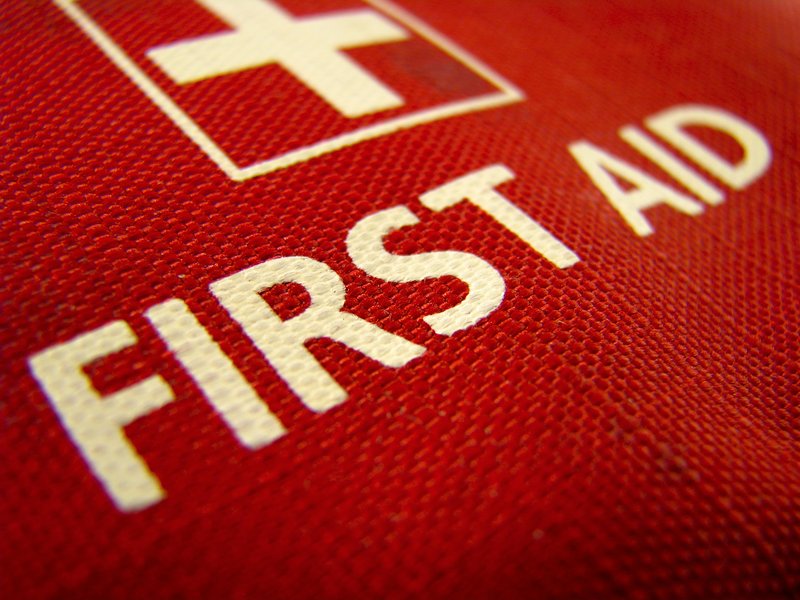
Most emergencies happen unannounced. They are never welcomed, but we don’t have a choice when they happen. Most of us have experienced such uncertainties at least once in our lifetime. This year, 2020, we are all experiencing uncertainty.
The worst part is not getting stuck in situations, but the lack of preparedness to handle them. If we think about the current situation where we are facing the most severe lockdowns across the globe, where supply chains are non-functional and we are struggling to make ends meet, imagine if you ran out of essentials! Are you prepared?
Unfortunately for many of us, that answer would be NO. This is because we get so busy leading our scheduled lives that we forget uncertainties can come up at any time. Granted, we cannot keep everything planned, but some essentials must always be on hand to combat problematic situations in a better manner. So here is a list of 7 things that you should always have in your house whether or not there’s an imposed stay at home order:
Cash: Though credit cards and internet banking have lowered the importance of cash in hand, cash is still the most accepted and traditional means of transacting. You never know what is coming ahead and what would be the demand at such times. Therefore, it’s necessary to hold a certain amount of contingency cash always ready at your home. Also, it is important to have enough money to cover you up for at least 2-3 months in your savings account.
Essential Documents: Keep all your essential documents filed together in an organized manner in a safe and readily accessible place. This should include paperwork for your insurance, legal documents, bank account copies, passport, and local ID. In fact, keep 2-3 duplicate copies along with the original ones to avoid any delay in emergencies. Keep a digital replica of all these documents uploaded to the cloud as well. It is essential to have documents handy because your ID proofs are the first thing that you will need to seek any help in situations that go beyond your control.
Fire extinguisher: Being home more often these days increases the chances of accidents, but the positive to that is we are home to handle them. You can take the best precautions to avoid accidents, but it’s always better to be prepared. It’s also essential to get regular maintenance or replacement as per the recommended schedule. You can organize a mock drill for yourself and family members and prepare yourself for any hazardous situation. This is just a safety measure and as rightly said, it’s better to stay well prepared so that you never get caught unprepared.
First Aid and Medicines: Many families today have a family member suffering from chronic illnesses like diabetes, blood pressure, asthma, etc. People with such chronic illnesses need timely supplies of medicines without fail. However, if any uncertain situations strike and we fall short of supplies, you never know when those prescriptions can be refilled. It’s better to keep at least 2 months’ supplies always stocked for such emergencies. It’s a contingency measure, that can be a savior if hard times come up. Similarly, a spare first aid kit should be stored in every home in a safe and accessible place. Further, non-prescription medicines like painkillers, antacid, and aspirin should be kept on-hand.
Dry Rations & Canned Goods: Whatever your situation, food is a basic necessity. While you cannot preserve fresh dairy products or fruits and vegetables, dry goods and ready to cook canned items can be safely stored for weeks or months. It’s recommended to keep additional stock of dry food items that can be used for at least a week. This is especially necessary in times of natural disasters. Thanks to enhanced technology, many disasters like hurricanes and tsunamis can be predicted so warnings can be broadcast via media to warn residents. If you live in prone areas, keep yourself updated with such information, and in case of an emergency, you’ll be able to eat if the supply chain is severed or worse, you are left on your own until help arrives.
Baby Products: If you have young children at home, then maintaining supplies of essentials as per their requirements is absolutely necessary. For babies, you should keep a stock of diapers, milk powder, wipes, and extra clothes for 2-3 weeks ready. Also, keep an additional supply of baby soap and any special needs your child may require.
Essentials: Apart from the things mentioned above, here are some essential items that should be kept close and ready to take with you. Lighters, battery-powered radio, extra house and car keys, spare cell phone, and face masks. These may appear as insignificant items but can be very useful in times of need.
Make your own emergency list with the help of this list. Double-check and update it to make sure that you’re well prepared at all times. Keep replenishing the stored stock and replace them as per their expiry dates. Remember when your parents told you it’s better to be safe than sorry? Well, being prepared is exactly what they meant.
